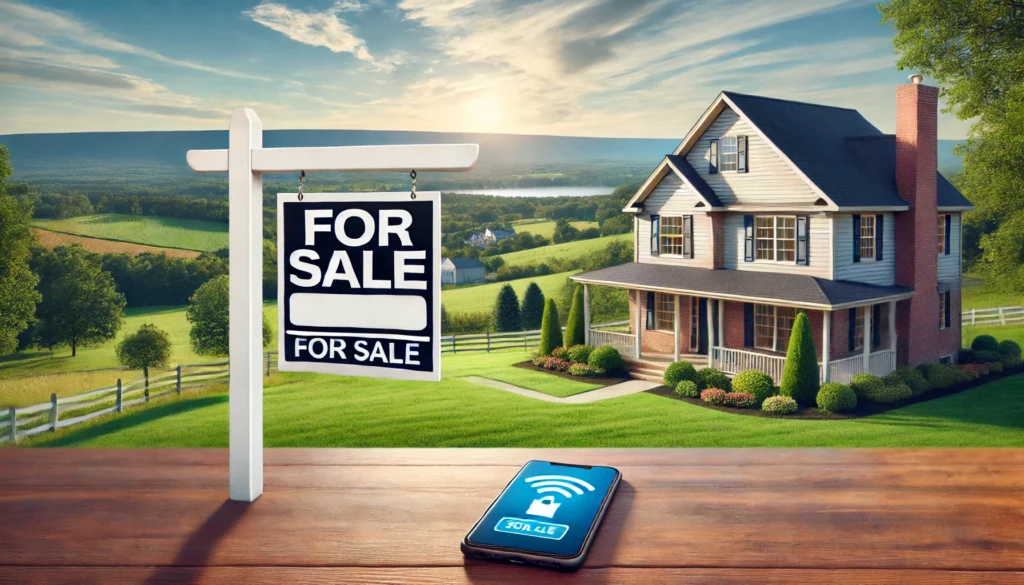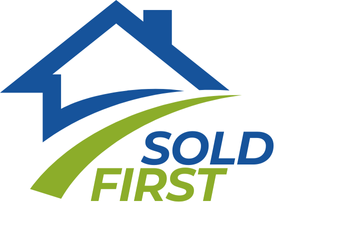Can You Sell a House Remotely in Pennsylvania?

Introduction
If you’re searching for “Can You Sell a House Remotely in Pennsylvania?”, chances are you’re facing a situation where you need to sell your house but are not physically present in the area. Perhaps you’ve relocated, or maybe you’re dealing with an urgent need to sell. Regardless, you want clarity on whether it’s possible to handle the sale of your home from afar and, more importantly, how to make this process smooth and stress-free.
You’re likely grappling with a few important questions: Can I sell my house remotely? What are the logistical challenges involved? How can I ensure that I’m getting a fair deal while managing this long-distance process? You’re looking for guidance on how to manage the sale remotely while ensuring that you’re not overpaying for services, avoiding hidden fees, and getting the best possible outcome.
This blog will walk you through exactly what you need to know about selling your house remotely in Pennsylvania, answering these questions and more. We’ll explore the different options, such as working with agents versus selling directly to an investor, and also weigh the pros and cons of remote selling to make sure you are well-informed. Along the way, we’ll show you how selling your house for cash may be the most advantageous option, especially if you’re looking for a quick, hassle-free sale.
Can You Sell a House Remotely in Pennsylvania?
The answer is yes—you can sell your house remotely in Pennsylvania. With today’s technology and the availability of virtual tools, selling a property without being physically present is more than possible. However, there are important considerations to keep in mind if you want to ensure that you’re getting the best deal while avoiding unnecessary complications. This process may seem daunting, but once you understand your options, it becomes much more manageable.
When selling remotely, the biggest question people often face is the legal and logistical side of things. In Pennsylvania, you can handle most aspects of the sale remotely, but it still requires careful planning and organization. With the right knowledge and resources, you can sell your property as easily as if you were there in person. The first step in making a successful remote sale is to know your options for how to sell your house.
To explore how the process works in more detail, you can check out our guide on Sell Your House Fast Before Relocating, which covers the full benefits of selling your house fast, without being present in person.
Selling Your House Remotely Through an Agent: How Does It Work?
If you’re not physically present in Pennsylvania, one option you may consider is working with a real estate agent. A real estate agent can handle most of the heavy lifting for you, making it a good choice if you’re comfortable with a more traditional selling process. Here’s how it typically works:
The Role of the Real Estate Agent in a Remote Sale
A real estate agent will work with you to list your property, market it, and negotiate with buyers. They can take care of everything from staging the home (if needed) to handling showings, handling the paperwork, and more. One of the advantages of working with an agent is that they can guide you through the legal processes and ensure everything is above board, even if you’re miles away.
However, it’s important to understand that hiring a real estate agent comes at a price. Agents typically charge a commission fee that ranges between 5% and 6% of the sale price. For example, on a $200,000 home, this commission would cost you $10,000 to $12,000. These fees can eat into your profits, especially if you’re working with a tight timeline or trying to minimize costs.
Additionally, there may be other costs to factor in, such as staging, repairs, and open house expenses. While these might be necessary to get the best price for your home, they can add up quickly.
The Challenge of Remote Showings
Another challenge with selling a home remotely through an agent is that you won’t be able to handle showings or inspections personally. While most agents will handle these tasks for you, it’s essential to have clear communication and trust in your agent to make sure that everything is handled according to your preferences.
You can find a detailed breakdown of how virtual showings and online tools can help you in the selling process on this guide by Zillow.
The Alternative: Selling Your House Remotely to an Investor
While working with a real estate agent is one option, another, often more convenient choice for remote sellers is selling your home to a real estate investor. This process can be far quicker and more straightforward, especially for people who need to sell quickly and without the burden of showings or repairs.
Why Sell Your House to an Investor?
One of the key advantages of selling your house for cash is the speed and convenience. Investors typically purchase homes “as-is,” meaning you don’t need to worry about making repairs or dealing with the cost of fixing up your property. They also don’t require the same extensive paperwork or inspections that traditional buyers do, which can speed up the process significantly.
If you’re in a situation where you need to sell quickly, such as if you’re facing foreclosure or a job relocation, this can be the ideal solution. Investors can often close the sale in a matter of days or weeks, as opposed to the months it might take with a traditional sale through an agent.
Another major benefit is that you can negotiate directly with the investor, which can help you avoid expensive agent commissions. With no third party involved, you keep more of the sale proceeds. For example, if your house is worth $200,000 and you sell it to an investor for cash, you might keep nearly the full amount, minus any closing costs, without paying any agent fees.
To learn more about the benefits of selling your house for cash, see our page on Relocating? Sell Your House Fast for Cash for a comprehensive guide to the process.
Disadvantages of Selling to an Investor
While selling to an investor has its advantages, it’s not without its downsides. One of the biggest concerns is that investors may offer less money than you would receive through a traditional sale. Investors typically buy homes at a discounted price to ensure they can make a profit after repairs and other costs. For example, if an investor offers $150,000 for your home, that’s $50,000 less than what you might get on the open market.
However, the tradeoff is the speed and simplicity of the sale. If you’re in a situation where time is of the essence, the offer might be more than fair, especially when you consider the cost savings on repairs and agent commissions.
How to Manage the Paperwork and Closing Process Remotely
One of the most intimidating aspects of selling a home remotely is handling the paperwork. Fortunately, many of the tasks involved can be done electronically, especially if you’re working with a reputable agent or investor who is familiar with remote transactions.
Signing Documents Remotely
To manage the sale remotely, you’ll typically need to sign a variety of documents, including the sales agreement, disclosure forms, and closing documents. Many real estate transactions today use e-signing platforms, which allow you to sign documents online securely. This makes it easier to handle the paperwork no matter where you are located.
Additionally, if you’re selling to a real estate investor, the closing process is usually more streamlined, which further reduces the need for you to be physically present.
Closing the Sale
Once all the paperwork is signed, the next step is closing. In a traditional sale, closing might require you to attend a meeting to finalize the sale, but with remote transactions, you can often attend the closing virtually or simply have a notary handle it for you.
By choosing to sell to an investor, you’re typically able to close the sale much more quickly, and the process is often much less formal compared to a traditional sale. This is especially helpful for sellers who may not be able to be present at the closing table.
Conclusion: Is Selling Remotely Right for You?
While it is certainly possible to sell a house remotely in Pennsylvania, it’s important to weigh the pros and cons of different selling methods. Working with a real estate agent might be a good choice if you’re looking to maximize your sale price and are willing to deal with the complexities of showings, repairs, and a longer timeline. However, selling to a real estate investor may be the best option if you’re looking for speed, simplicity, and a cash offer with minimal hassle.
At Sold First, we specialize in helping homeowners like you sell their property quickly and without the stress. If you’re looking to sell your house remotely, we offer a fast, efficient process with no need for repairs, showings, or lengthy paperwork. We provide fair cash offers and can close the sale in a matter of days, giving you the flexibility to move forward with your plans without delays.
If you’re ready to sell your house remotely, Sold First is here to help. Contact us today to get a no-obligation cash offer and see how easy it can be to sell your property quickly and hassle-free.

